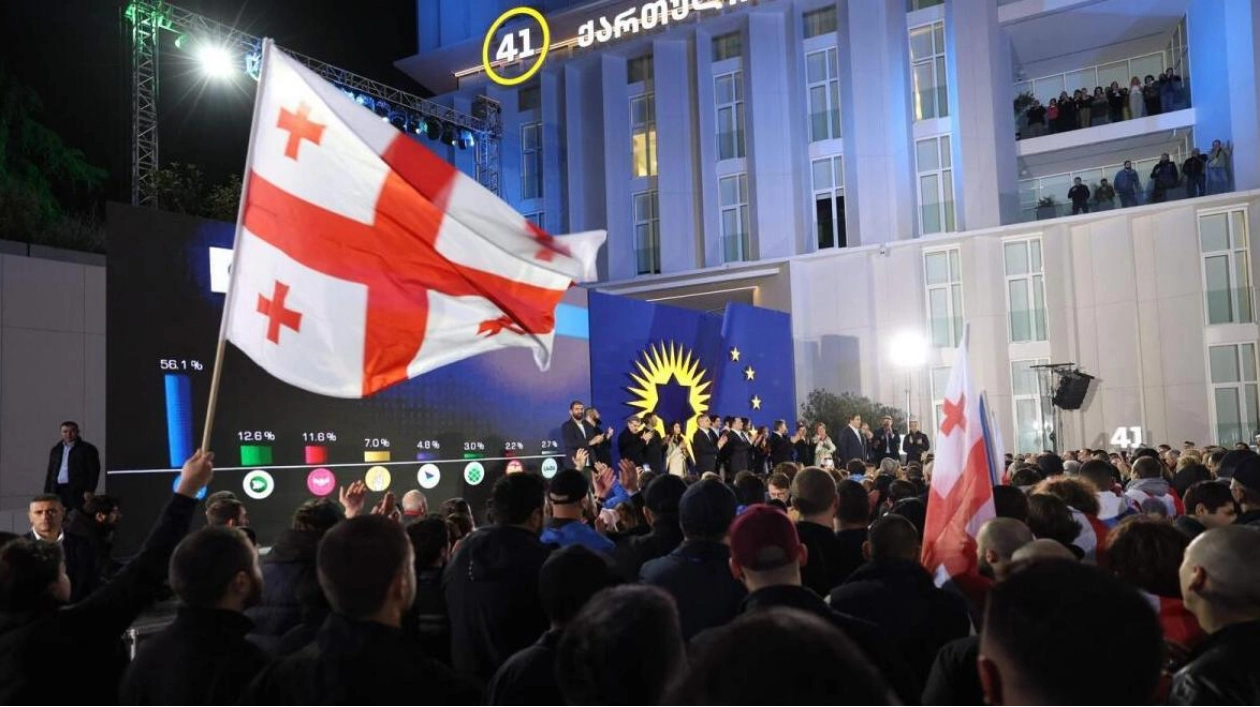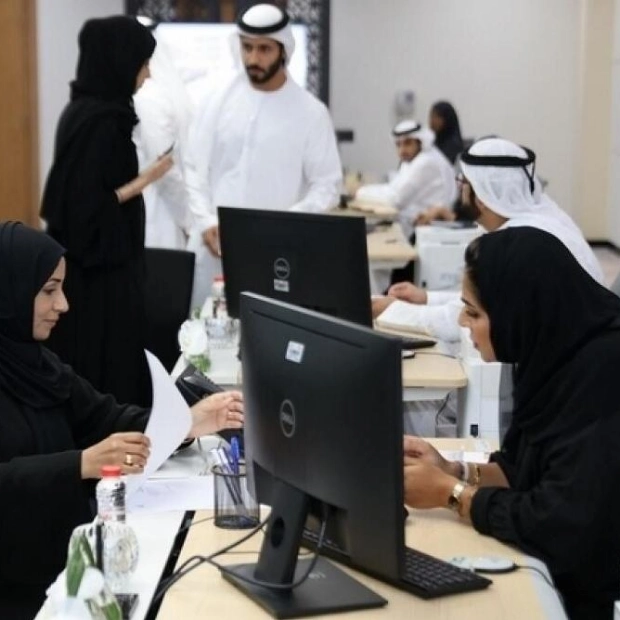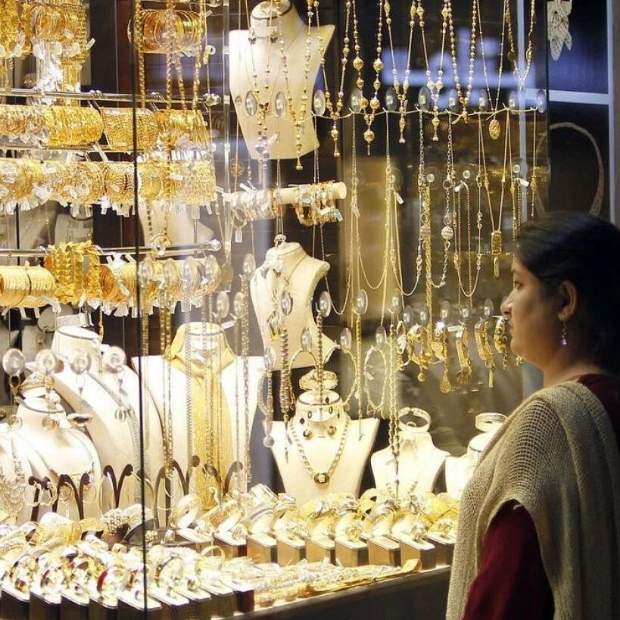Supporters and members of the ruling Georgian Dream party gathered at the party's headquarters in Tbilisi on Saturday following the announcement of exit polls during the parliamentary elections.
The Georgian electoral commission reported on Sunday that the ruling Georgian Dream party secured over 54% of the vote in the parliamentary election, a result contested by opposition parties. With over 99% of precincts counted, this outcome is a setback for pro-Western Georgians who viewed the election as a decision between a ruling party strengthening ties with Russia and an opposition pushing for accelerated integration with the European Union.
The Georgian election monitoring group ISFED documented violations such as ballot-stuffing, bribery, and voter intimidation, which could have influenced the results. However, ISFED noted that there were no significant irregularities in the vote counting process, which was mostly conducted electronically.
The electoral commission and Georgian Dream party did not immediately respond to allegations of misconduct but celebrated the election as free and fair on Saturday. Georgian Dream is expected to address the allegations later on Sunday.
The country's four main opposition parties refused to recognize the results, with one leader describing the outcome as a 'constitutional coup'. They based their stance on two exit polls indicating that the opposition would win a majority in parliament.
Bidzina Ivanishvili, the reclusive billionaire founder of Georgian Dream, heavily campaigned on keeping Georgia out of the war in Ukraine. He claimed victory on Saturday night after his party's strongest performance since 2012. Electoral commission data showed Georgian Dream winning by significant margins of up to 90% in some rural areas, although it underperformed in larger cities.
Ivanishvili's Georgian Dream party advocates for Georgia's EU membership, but Brussels has frozen the country's application, citing Georgian Dream's authoritarian tendencies. The party has enacted laws on 'foreign agents' and curbing LGBT rights, drawing criticism from Western nations but garnering praise from some Russian officials.
Georgia, once one of the most pro-Western countries to emerge from the Soviet Union, has seen many Georgians express dislike for Russia due to its support for two breakaway regions. The two countries fought a brief war over the rebel province of South Ossetia in 2008, with Georgia being defeated.
The election result poses a challenge to the EU's expansion plans, and the bloc may find it difficult to respond uniformly. Hungarian Prime Minister Viktor Orban congratulated Georgian Dream before the official results were announced, while the EU's foreign policy arm stated it could not comment until election monitors had reported their findings.
An EU official expressed 'a sense of disappointment' over the opposition's performance but emphasized concern over a contested result leading to a standoff. A local monitoring organization called for the results to be annulled due to reports of voter intimidation and vote buying, though it did not immediately provide evidence of widespread falsification.
Last week, Moldova narrowly approved its European Union accession in a vote that Moldovan officials claimed was influenced by Russian interference.
Source link: https://www.khaleejtimes.com






